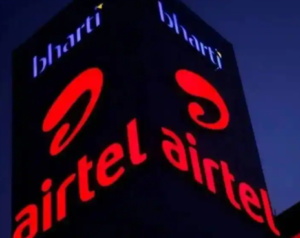On Wednesday, Bharti Airtel increased its stake in Indus Towers, acquiring approximately 26.95 million shares. This acquisition raised Bharti Airtel’s ownership in the tower infrastructure company from 47.95% to 48.95%. The purchase was a part of a larger transaction in which Vodafone Plc, based in the UK, sold an 18% stake in Indus Towers, generating around 1.7 billion euros (approximately Rs 15,300 crore).

Vodafone Plc, which previously held a 21.5% stake in Indus Towers, initially intended to sell a 10% stake. However, due to robust demand from investors, Vodafone expanded the sale, eventually offloading nearly double the initially planned amount. The shares were sold within a price range of Rs 310-341 per share, reflecting the high interest and competitive bids from potential buyers.
Following this significant transaction, Vodafone’s stake in Indus Towers has been significantly reduced to 3.1%. The telecom giant plans to use the majority of the proceeds from this sale to repay 1.8 billion euros of outstanding bank loans. These loans were secured against Vodafone’s assets in India, and their repayment is a strategic move to reduce the company’s debt and strengthen its financial position.
This move by Bharti Airtel to increase its stake in Indus Towers signifies a strategic consolidation in the Indian telecom infrastructure sector. By enhancing its stake, Bharti Airtel solidifies its influence and control over one of India’s largest telecom tower companies. Indus Towers, a key player in the industry, provides essential infrastructure support to mobile network operators across the country, enabling them to deliver seamless services to their customers.

For Vodafone, this sale represents a critical step in its broader strategy to streamline operations and focus on core markets. The funds generated from the stake sale will significantly aid in debt reduction, thereby improving Vodafone’s financial health and providing greater flexibility for future investments and strategic initiatives.
The Indian telecom market has been witnessing significant consolidation and strategic shifts, with major players like Bharti Airtel and Vodafone actively realigning their positions. Bharti Airtel’s increased investment in Indus Towers is a testament to its commitment to strengthening its infrastructure capabilities, which is crucial for supporting the growing demand for mobile data and broadband services in India.
Moreover, this transaction underscores the dynamic nature of the telecom industry, where companies continuously adapt to market conditions, investor interests, and financial imperatives. As Vodafone reduces its presence in Indus Towers, Bharti Airtel’s augmented stake highlights its proactive approach to leveraging market opportunities for long-term growth and stability.

In conclusion, Bharti Airtel’s recent acquisition of additional shares in Indus Towers and Vodafone’s substantial stake sale mark significant developments in the Indian telecom sector. Bharti Airtel’s increased stake positions it favorably for future growth, while Vodafone’s focus on debt reduction reflects its strategic financial management. These moves are likely to have far-reaching implications for the industry, influencing market dynamics and competitive strategies in the coming years.
4o